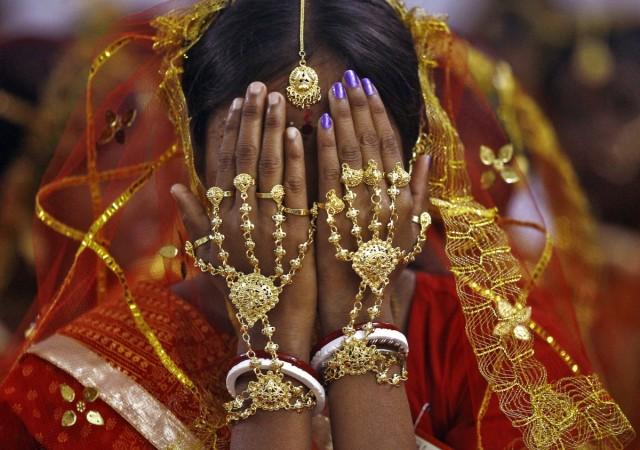
Close on the heels of Congress MP Ranjeet Ranjan's bill in the Lok Sabha seeking to curb the amount of money spent on marriage ceremonies, the Department of Food, Civil Supplies and Consumer Affairs of Jammu and Kashmir issued an order on February 20, imposing restrictions on injudicious use of essential commodities at functions with effect from April 1.
Read: Bill to curb wedding expenses, number of guests and dishes introduced in Lok Sabha
While the bill introduced by Ranjan proposed a 10 percent donation to families of poor girls in case the expenditure of either family crossed Rs 5 lakh, the order issued by J&K said, "It should be ensured that there is no wastage of any food items uncooked or cooked during the wedding functions. If there are some surplus food items (cooked), it should not be thrown into dustbins but provided to deserving people and old age homes after properly preserving and packing."
The J&K government has also banned loudspeakers and firecrackers at functions.
J&K Govt restricts no. of guests for wedding ceremony of daughter &son to 500 & 400 respectively& to 100 for small functions like engagement
— ANI (@ANI_news) February 21, 2017
International Business Times, India sounded out people from across age groups on the ban.
"In India society swears by the government. So if the government itself is coming up with a way to say no to lavish weddings, then it will at least shut up people who come to weddings only to criticise. Also as a mother of two young adults, it is a relief to me that such initiatives are being taken," Susmita Ghosh, a resident of Jamshedpur, told IBTimes, India.
Many others too echo similar sentiments. Supriti Chongdar, a 55-year old native of Howrah, says, "Finally a good initiative has been taken up. Marriages are the best place to show off your wealth and even give others an opportunity to compare. This will also reduce the gap between the poor and the rich."
Bidisa Das, a 52-year-old housewife, also thinks it is a good step. "People spend way too much on weddings," she says. "The fact that you have to donate 10 percent of your expenses post the Rs 5 lakh ceiling may help raise considerable funds."
While the older generations are all up for the ban, the younger people are not willing to play along.
Anju Alex, a 22-year-old business associate with Quiklo, emphasises that it's a personal decision and should be left at that.
Prajanma Das, 24, too feels that no one can be forced to spend within a stipulated margin in the name of equality. "The bill proposes to even fix the number of guests and food arrangements. Is that even plausible?," he asks. Others too question the limit proposed on the number of guests. According to Arun C, the move may result in offending people who don't get an invite. "What if one has a huge friend circle from all walks of life, it's our wish who we want to share the joyous occasion with," he says. "Calling limited people is definitely offensive. We live in an age where everything has an extraordinary pricing. Who is going to decrease the price of the commodities and services like gold, marriage halls, electricity and even flowers?"





!['Lip lock, pressure, pyaar': Vidya Balan- Pratik Gandhi shine in non-judgmental infidelity romcom Do Aur Do Pyaar [ Review]](https://data1.ibtimes.co.in/en/full/797104/lip-lock-pressure-pyaar-vidya-balan-pratik-gandhi-shine-non-judgmental-infidelity-romcom.jpg?w=220&h=138)








